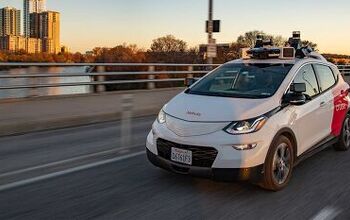Tesla Demands Return to Obama Fueling Restrictions, Reasons Obvious

Tesla is demanding the reinstatement of a 2016 Obama regulation that more than doubles penalties for manufacturers who fail to adhere to fuel efficiency requirements. Gee, I wonder why it would do such a thing.
While focusing on the environment is an admirable endeavor, much of the discussion surrounding environmentalism on the corporate level really skirts around the periphery of Scamville. Elon Musk is no fool and understands that the more stringent regulations are enacted against his competitors, the more desperate they will be to buy up Tesla’s mountain of carbon credits. With a little help from the government, electric-vehicle companies can effectively bankrupt their more-traditional rivals while earning a nice payday for themselves. In fact, Tesla has only managed to become a profitable company because of this practice.
That’s not an attempt to bash the automaker, either. EVs are still rather costly to produce, haven’t yet achieved parity with fuel burners, and many have argued they would fail without government assistance. We’ve even seen countless startups wither and die in China as the government began pulling subsidies. Starting an automotive company is insanely difficult and building one that’s an affront to established industry players is borderline impossible. Props to Tesla for making the world work on its behalf through carbon credits and tax subsidies.
But the company is starting to look all grown up, making this whole deal look a lot less cute. Tesla stock remains extremely desirable and it’s officially become a global automaker. How much more help does it seriously deserve? Tesla Inc. reeled in over $3.3 billion from regulatory credits over the last three years. Roughly half of that came in from 2020 and was the only way to keep the company from operating at a loss. Meanwhile, its automotive arm is starting to see serious gains (thanks largely to its global expansion), and corporate leadership has claimed this will be sufficient in keeping it afloat, especially since it sees the carbon credit game becoming less profitable over time. The company claims it doesn’t need to sell credits to be profitable anymore, but you had better believe it’s still going to make use of them.
According to Bloomberg, Tesla has asked a federal appeals court in New York permission to join an appeal by the Natural Resources Defense Council and the Sierra Club. The group seeks to undo laws enacted by the previous administration they believed weakened the Corporate Average Fuel Economy (CAFE) standards.
From Bloomberg:
The court hasn’t yet ruled on whether Tesla can join the case.
“The previous Administration’s egregious action presents a situation as extraordinary as it is unjustified and inflicts immediate and irreparable injury on Tesla and the public,” the Palo Alto, California-based company said in a brief filed March 4 with the Second U.S. Circuit Court of Appeals.
Tesla, whose cars generate no emissions, claimed the Trump administration’s rule harms it by devaluing the credits it’s permitted to sell other companies because it exceeds CAFE standards.
We’d like to take this opportunity to let anyone reading now that all EVs absolutely generate emissions when being manufactured (and shipped) and will continue to do so depending on how you’re sourcing the electricity. Meanwhile, President Joe Biden has ordered a complete review of the existing emissions rules. The National Highway Traffic Safety Administration said it expects to have it completed within the next six months.
[Image: JL IMAGES/Shutterstock]

A staunch consumer advocate tracking industry trends and regulation. Before joining TTAC, Matt spent a decade working for marketing and research firms based in NYC. Clients included several of the world’s largest automakers, global tire brands, and aftermarket part suppliers. Dissatisfied with the corporate world and resentful of having to wear suits everyday, he pivoted to writing about cars. Since then, that man has become an ardent supporter of the right-to-repair movement, been interviewed on the auto industry by national radio broadcasts, driven more rental cars than anyone ever should, participated in amateur rallying events, and received the requisite minimum training as sanctioned by the SCCA. Handy with a wrench, Matt grew up surrounded by Detroit auto workers and managed to get a pizza delivery job before he was legally eligible. He later found himself driving box trucks through Manhattan, guaranteeing future sympathy for actual truckers. He continues to conduct research pertaining to the automotive sector as an independent contractor and has since moved back to his native Michigan, closer to where the cars are born. A contrarian, Matt claims to prefer understeer — stating that front and all-wheel drive vehicles cater best to his driving style.
More by Matt Posky
Latest Car Reviews
Read moreLatest Product Reviews
Read moreRecent Comments
- Master Baiter Mass adoption of EVs will require:[list=1][*]400 miles of legitimate range at 80 MPH at 100°F with the AC on, or at -10°F with the cabin heated to 72°F. [/*][*]Wide availability of 500+ kW fast chargers that are working and available even on busy holidays, along interstates where people drive on road trips. [/*][*]Wide availability of level 2 chargers at apartments and on-street in urban settings where people park on the street. [/*][*]Comparable purchase price to ICE vehicle. [/*][/list=1]
- Master Baiter Another bro-dozer soon to be terrorizing suburban streets near you...
- Wolfwagen NO. Im not looking to own an EV until:1. Charge times from 25% - 100% are equal to what it takes to fill up an ICE vehicle and 2. until the USA proves we have enough power supply so as not to risk the entire grid going down when millions of people come home from work and plug their vehicles in the middle of a heat wave with feel-like temps over 100.
- Kwik_Shift_Pro4X Where's the mpg?
- Grg These days, it is not only EVs that could be more affordable. All cars are becoming less affordable.When you look at the complexity of ICE cars vs EVs, you cannot help. but wonder if affordability will flip to EVs?


































Comments
Join the conversation
A lot of hand-wringing about what a car company WANTS the government to do. Whether the government ACTUALLY does what Tesla wants it to do is another story. And if that happens, it'll be because of one thing, and one thing only: payola. The only reason why Tesla would even ask this is that it thinks maybe it can grease enough palms to get it done. The real problem here isn't Tesla, or EVs, or carbon credits - it's a political system where elected officials can be legally bribed. Think Tesla's the only company doing it? Wake up. How do you think oil companies magically got tax credits at a time when they were raking in billions upon billions in profits? Why do you think GM and Chrysler had the temerity to go to the government, hat in hand, and demand bailouts? How did BP expect to stay in business in this country after unleashing an environmental disaster so bad that if it was a foreign government, we'd have launched Tomahawks on it? It's real simple: by bribing our elected officials, those companies bought chits that they traded in when the time was right.
FreedMike; Sadly, you are absolutely correct on this one. The famous Eisenhower dictum: “beware of the military-industrial complex”, should be really expanded to: “beware of the military-industrial-congressional complex” Other large companies immediately caught on this taxpayer funded corporate welfare.